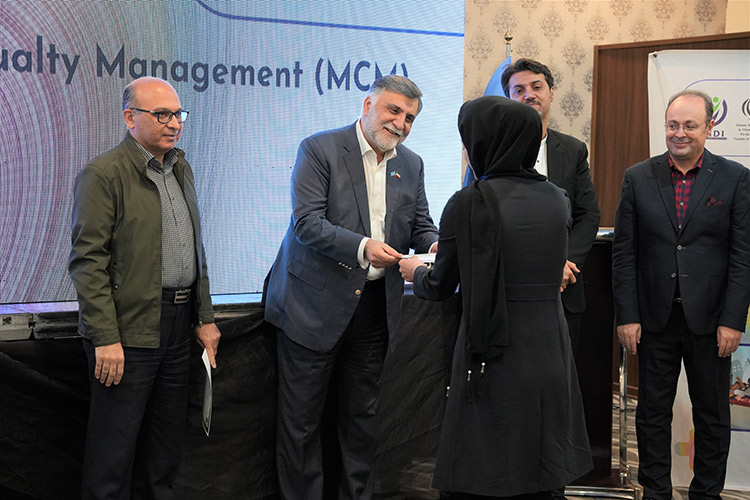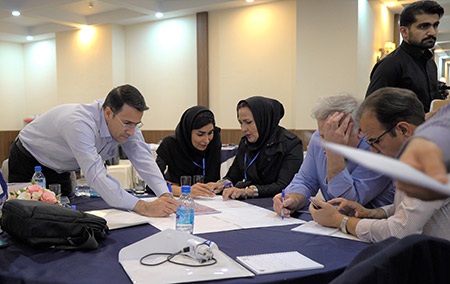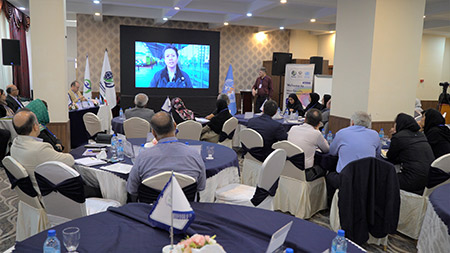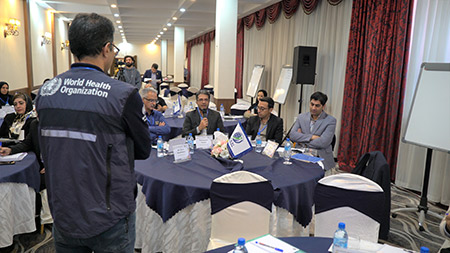
12 November 2024, Tehran, Islamic Republic of Iran – The World Health Organization (WHO) has conducted its second mass casualty management (MCM) training course in Tehran (27–30 October 2024), empowering 38 first responders from the provinces of Sistan and Baluchistan, Hormozgan, Kerman and Khorasan Razavi. The initiative, funded by the European Civil Protection and Humanitarian Aid Operations (ECHO), underscores WHO's commitment to enhancing emergency preparedness and response capabilities in the Region.

The training brought together a diverse group of health care professionals, including emergency medicine specialists, nurses, paramedics and heads of emergency units. Led by national certified facilitators trained by WHO in June 2023, the course focused on equipping participants with the skills and knowledge needed to effectively manage mass casualty incidents (MCIs).
MCIs, characterized by a sudden surge of casualties that can overwhelm existing health care resources, pose a significant challenge to health care systems. MCIs can have many causes, including natural disasters, accidents and acts of violence. WHO's MCM training aims to address systemic gaps in emergency response by establishing minimum standards and providing specialized training for frontline MCI health care providers.
"During critical events, hospital-based emergency units are vital in providing immediate medical assistance and triaging patients effectively," said WHO Representative and Head of Mission to the Islamic Republic of Iran Dr Syed Jaffar Hussain.
"When these units become overwhelmed, both direct and preventable mortality rates can rise significantly. By empowering health care professionals with the necessary skills and knowledge we can improve emergency response capacities and save lives during crisis situations in the Islamic Republic of Iran."

WHO's proactive approach to MCM training reflects its dedication to strengthening health systems and ensuring that countries are better prepared to respond to emergencies. Through initiatives such as this, WHO plays a crucial role in safeguarding health and well-being globally.





